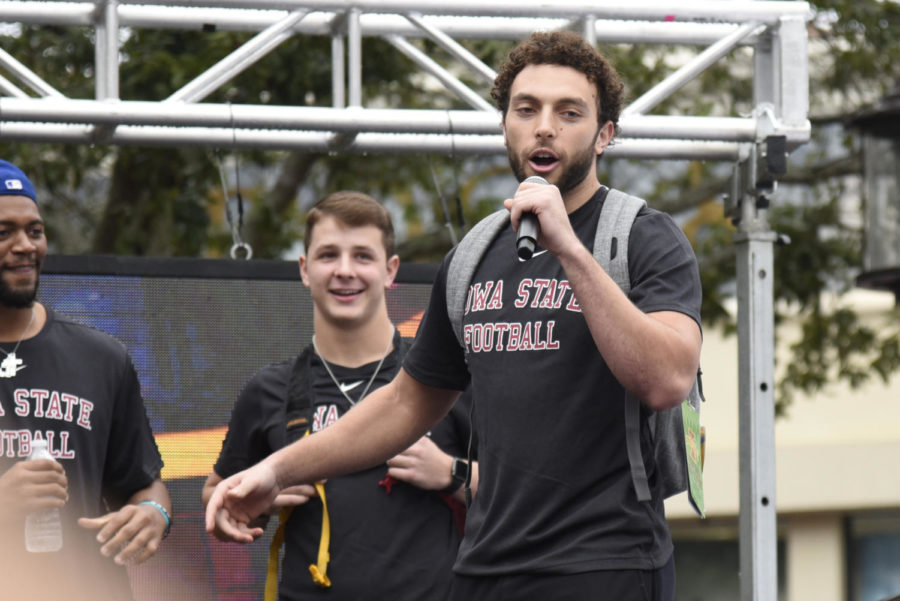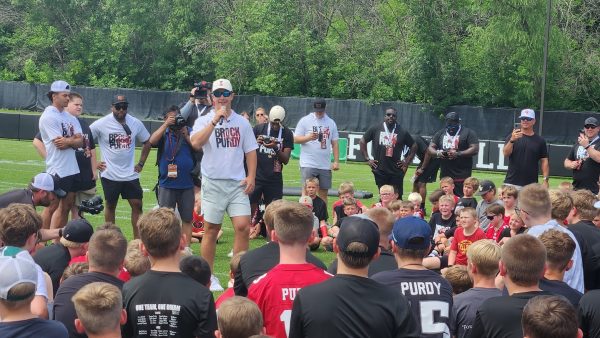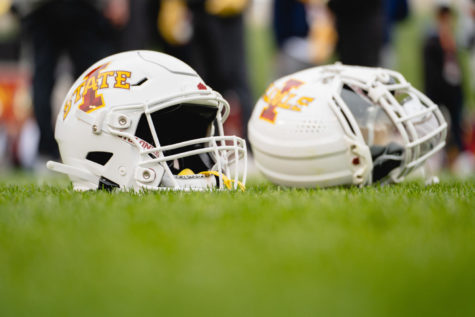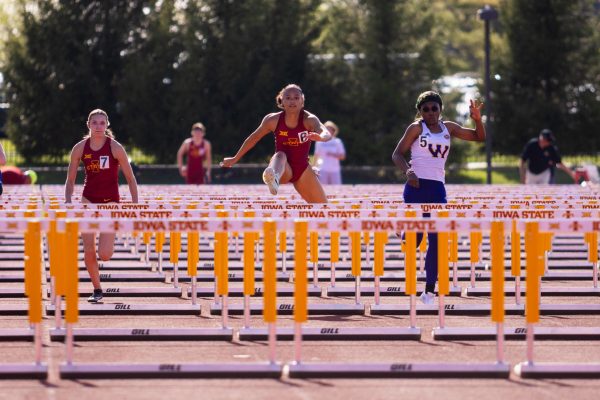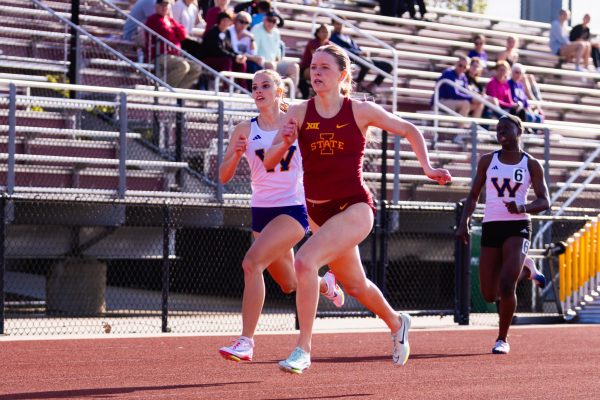Cyclones respond to players speaking out and a potential player’s association
August 25, 2020
The debate over what student-athletes should deserve for their efforts on and off their respective fields, courts or mats has long been a popular topic at the forefront of collegiate sports.
Student-athletes drive the world of collegiate sports and are a big reason why millions of people focus their attention on the student-athlete’s school and sport. This in turn leads to the NCAA and the schools profiting millions of dollars.
Regardless of which side of the argument people may fall on, the NCAA remains the governing body over a large portion of Division I, II and III sports. This means the NCAA or the respective conferences around the country make the decisions regarding the student-athletes.
For years, people have pushed for the roles of the student-athletes to be expanded upon from just being a student and being an athlete. Student-athletes have started speaking out more and more for their interests and the uncertainty of the 2020 football season has expanded upon that.
Two of the five conferences — the Big Ten and the Pac-12 — that make up the Power Five Conferences made the decision to cancel the fall football seasons for the teams in those conferences, much to the dismay of the players and teams of those conferences.
There was a voting period between the presidents of the schools among those conferences that ultimately made the decision to not play football. This was one of the reasons why many high-profiled college football players wanted to speak out about wanting to play football. Players included the likes of Clemson quarterback Trevor Lawrence and Ohio State quarterback Justin Fields.
The Big 12, Southeastern Conference and Atlantic Coast Conference — which makes up the remaining three conferences of the Power Five — all made the decision to go forward with fall football. The decision-making process about whether football would take place varied for each conference. Some took players’ input and some didn’t.
Iowa State senior tight end Chase Allen credited the Big 12 for being one of the conferences that reached out for player feedback before making the decision to ultimately move on with the football season.
Allen’s head coach backed up that sentiment, thanking the Big 12 for allowing some form of dialogue to take place unlike other Power Five conferences.
“I see it as a huge positive and certainly commend the leadership team in the Big 12 for opening their doors and having the ability to have dialogue and have conversations with the most important entity,” Head Coach Matt Campbell said. “It’s not the coaches, not the [athletic director], it’s the players and I’m glad that occurred.”
Campbell also mentioned Allen was one of Iowa State’s representatives in the conversations between the Big 12 and schools about playing football and felt Allen represented student-athletes in the best way he could.
While members of the Big 12 might have been lucky to have been heard, players of other conferences may not have gotten that opportunity. This is where the #WeAreUnited and #WeWantToPlay movements came from, with the likes of Lawrence and Fields spreading the messages over social media.
These posts from Lawrence, Fields and many other student-athletes from around the country established their want to play football, providing more protection for student-athletes and their eligibility and the push for a hopeful college football player’s association to help athletes get their voices heard.
One of the few places where players have a voice to be heard is through social media like Twitter. Social media provides players with a platform to speak out on their beliefs, and Campbell views it as a great opportunity for players to be heard.
“I’ve always believed that players should have a voice, and at this level they work really hard to have a platform to be able to have a voice and be able to use their platform in a positive way,” Campbell said. “[Trevor Lawrence and Justin Fields] are two examples of players that chose to use their platform to talk about playing the sport of football.”
The one part from the social media posts that gained lots of attention is at the end where the players mentioned, “Use our voices to establish open communication [and] trust between players and officials; ultimately create a college football players association.”
A player’s association would allow the student-athletes that drive collegiate sports to have a voice over how they’re handled, instead of the NCAA or individual conferences making those decisions.
After the initial news broke of the Big Ten canceling its football season, a plethora of players, coaches and athletic directors spoke out about how they didn’t feel represented in that decision.
Players from around the country supported the idea of having their own player’s association, even Allen mentioned the idea of a player’s association being a great idea.
But while players like the idea, there’s still concerns surrounding it. The idea of a player’s association seems unprecedented, given the NCAA’s history of controlling its athletes.
“I’m not against it, but I can’t say that I’m all for it either, because there’s so many unknowns for me, so it’s hard for me to make a decision on that,” Iowa State defensive back Greg Eisworth said.
One of the points Allen brought up with creating a player’s association is that it would be hard to establish considering the amount of players that bounce around conferences and players that are on and off teams.
While there are so many different issues to work around if players hope to one day have an association that lets them use their voice, the one thing Allen, Eisworth and Campbell all agreed on is players should be heard.
“I’m all for players coming together and speaking up for what they believe in,” Eisworth said. “I’m all for that, I’ve never had an issue with that.”

